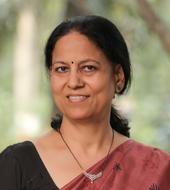Certificate Programme in Disaster Management
This online DM certificate course is designed to address the existing practice-knowledge gaps by developing humanitarian professionals with the right blend of academic and practical approaches to reduce vulnerabilities and risks to hazards while developing ways of building the resilience of nations and communities to disasters. This integrated programme defines humanitarian response within the framework of an understanding of development, with vulnerability and disaster risk reduction as an integral part of development. This programme recognizes the vulnerabilities faced by the poor and marginalized and the disproportionate impact of disasters endured by them in the developing world. In this programme, the study of disaster risk reduction, disaster response and post-disaster recovery will be grounded in the values of justice, equity and social inclusion.
The one-year Certificate Course is an introductory level foundation course covering the topics given below:
| Sl. No. | Module/Course | Description | Course Credit | Faculty |
|---|---|---|---|---|
| A. | Learning to Learn (Mandatory Course) | An introduction to the methodology of online classrooms and the tools for communication and interactions. Guided practical exercises to gain an understanding of the Programme structure, method of delivery, and assessment. | Non-Credit | NA |
| B. | World of Red Cross and Red Crescent (Mandatory Course) | An introduction to the world of the Red Cross and Red Crescent Societies, its work in the field of disaster management, and discussion of its Strategy 2020. | Non-Credit | NA |
| 1 | Introduction to Development | The key objective of this module is to equip students to examine basic concepts related to development, including human development and sustainability, in order to understand disasters and provide meaningful, sustainable responses to them. This course will link development and its impact on disasters. | 02 | Dr. Janki Andharia |
| 2 | Humanitarian Principles,Laws and Standards in Disaster Management | This module provides a clear understanding of humanitarianism and humanitarian principles underlying the response to natural disasters and conflicts. It highlights the need for accountability and transparency during disaster responses through various practical examples and illustrations. It also looks at the various facets of applying humanitarian standards in disaster contexts. | 02 | Ms. Saumya Kumar |
| 3 | Introduction to Hazards, Vulnerabilities and Disasters | This module aims to develop a conceptual understanding of hazards, exposure, risk, vulnerability, and disaster. It explains how vulnerability (internal susceptibility or defencelessness) and hazard (an external event) interact to create disasters and discusses various perspectives and approaches to Disaster Risk and Vulnerability Assessment. | 04 | -Dr. Sohini Sengupta
-Ms. Saumya Kumar -Dr. Peehu Pardeshi |
| 4 | Disaster Risk Reduction and Development Planning | The objective of this module is to develop knowledge and a critical outlook on the different frameworks, approaches, and methods for disaster prevention, preparedness, and vulnerability reduction. | 02 | Dr. Sohini Sengupta |
| 5 | Information Communication and Geo-informatics Technologies in Disasters | This module introduces participants to Information Communication Technology (ICT) and Geo-Informatics Technology (GIT) and their use in planning, mitigation, and response in disaster situations. | 02 | -Dr Ramesh Veerappan
-Dr Ravinder Dhiman |
| 6 | Disaster Response and Recovery | This module serves as an introduction to concepts relating to Organized Response; Nature and Type of Immediate Response; Disaster Management Plans; Key Response Functions, including Public Health, Logistics and Governance; Recovery, Rehabilitation and Reconstruction; Economics and Financial Aspects of Recovery and Reconstruction. | 02 | -Ms. Niti Mishra
-Ms. Saumya Kumar |
| 7 | Term Paper | The term paper is a self-study component in which the participants is encouraged to explore the intricacies of a specific topic beyond what is possible to cover within the units in each module. The process of writing the term paper will enable participants to find and analyse relevant information and convey conclusions and recommendations to others – whether peers or the disaster management community. | 02 | JTSDS Faculty Supervisors & IFRC-TISS Programme Team |
| 8 | Field Practicum | The Field Practicum is the most vital component of the Programme as it brings together all the key theoretical learnings for the participants. The internship or field practicum in the Programme aims to enable the participants to develop a broader national or international perspective on disaster management. The overall thrust will be to focus on issue-based work and complex emergencies for a period of 4 weeks. This could be linked to the term paper also. The internship may be based with organizations engaged with high quality research or practical work in the field of disaster studies. It may also be based with any of the UN agencies or government structures. | 04 | Ms. Saumya Kumar & IFRC-TISS Programme Team |


